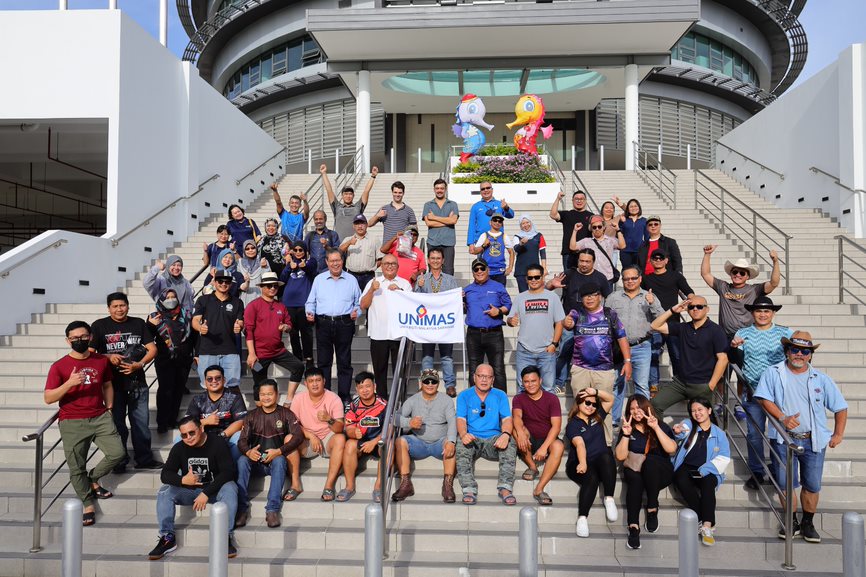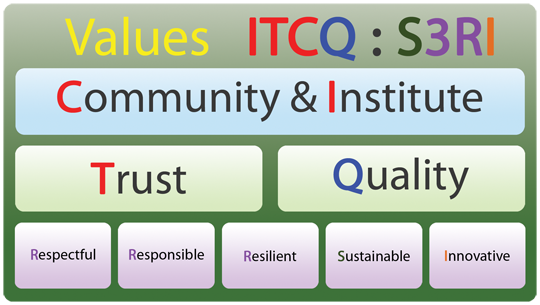About ISITI
Our Identity & Direction
Our Story
The Institute of Social Informatics and Technological Innovations (ISITI) at Universiti Malaysia Sarawak (UNIMAS) was established in April 2011, evolving from the Centre of Excellence for Rural Informatics (CoERI). Since its founding, ISITI has been dedicated to bridging the gap between technology and marginalized communities—especially indigenous and rural populations—through innovative, socially-driven research and community initiatives.
Vision
To be a leading (an internationally acknowledged) research institute that transforms social communities towards a knowledge-based society by leveraging on ICT innovation.
Mission
To generate, disseminate, apply and preserve knowledge through an innovative and multidisciplinary approach to empower society to sustainably address their developmental needs in a wider social and economic contexts.

Functions
The Institute of Social Informatics and Technological Innovations (ISITI-CRI) began its operation in April 2011, and was upgraded from the Centre of Excellence for Rural Informatics (CoERI); the Centre was established given the success of our flagship bridging-the-digital-divide pilot project, eBario. A key focus of ISITI is to bridge the technology-people’s gap; in particular, encompassing technological innovations for indigenous communities.

Community and Institute
We should prioritize the needs of the community and the Institute above all else, as our main purpose for being a part of ISITI is to serve the community.
Trust
As a relationship based on trust is the key to our success and sustainability, we must continue to maintain our close ties with the community and build our existing networks.
Quality
The quality of our work reflects on the image of the Institute therefore we should always aim for the highest levels of excellence in all that we do.
Respectful
We should respect those we are working with, irrespective of who they are, what positions they hold.
Responsible
By taking Responsibility of our actions, being responsible in our dealings, will help to build trust.
Resilient
Many times we are charting new grounds, trying new things, treading where usually no one has gone before.
Sustainable
We should aim for Sustainability in all projects, be it, in community or at the Institute.
Innovative
ISITI-CRIans have to be innovative to develop efficient and effective products, services, technologies, and processes.
What We Do
ISITI’s work spans four strategic focus areas:

Community Sustainability
We design solutions that help communities be more resilient and self-reliant, integrating social, environmental, and economic perspectives.
Community Sustainability

We design solutions that help communities be more resilient and self-reliant, integrating social, environmental, and economic perspectives.

ICT for Development (ICT4D)
We leverage information and communication technology to empower underserved communities, reduce inequalities, and increase access to resources.
ICT for Development (ICT4D)

We leverage information and communication technology to empower underserved communities, reduce inequalities, and increase access to resources.

Socio-Technical Innovation
By combining social science insights with technical expertise, we create human-centered systems that address real-world challenges.
Socio-Technical Innovation

By combining social science insights with technical expertise, we create human-centered systems that address real-world challenges.

Indigenous Knowledge Management
We preserve and digitize traditional wisdom, ensuring cultural heritage is integrated into modern innovation pathways.
Indigenous Knowledge Management

We preserve and digitize traditional wisdom, ensuring cultural heritage is integrated into modern innovation pathways.
OUR STRENGTHS
Multi-Disciplinary Research Conducted
ISITI brings together more than 30 researchers from different Faculties and Centres in UNIMAS; from the social sciences, to ICTs and engineering.
Multi-Disciplinary Research Conducted
ISITI brings together more than 30 researchers from different Faculties and Centres in UNIMAS; from the social sciences, to ICTs and engineering.
Rapport with Indigenous Communities
All our sites' population comprise of indigenous communities such as the Kelabit, Penan, Lun Bawang, Dusun, Bajau, Bidayuh, Semai and Temiar ethnic groups. The rapport provides the opportunity to work with these communities on new projects, which benefits both researchers and the communities involved
Rapport with Indigenous Communities
All our sites' population comprise of indigenous communities such as the Kelabit, Penan, Lun Bawang, Dusun, Bajau, Bidayuh, Semai and Temiar ethnic groups. The rapport provides the opportunity to work with these communities on new projects, which benefits both researchers and the communities involved
Bridging the Theory-Practice Gap
All our researchers not only conduct research, but also go down to the ground to study, design, implement and evaluate programmes at the community level.
Bridging the Theory-Practice Gap
All our researchers not only conduct research, but also go down to the ground to study, design, implement and evaluate programmes at the community level.


